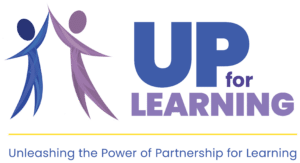On Monday, March 18th, members of Winooski School’s Antiracism Steering Committee (ARSC) met with Mia Schultz and Melody Mackin, members of the Vermont Truth and Reconciliation Commission (VTRC). One of the six Winooski Students for Antiracism demands is to “form a Racial Truth and Reconciliation Commission (TRC) tasked with organizing hearing campaigns related to the occurrences of racial biases, prejudice, and injustices at Winooski School District in the past.” This meeting was a chance for the ARSC to hear about the formation of a TRC at the state level, to gain insight into creating their own TRC, and to find ways to partner with the Vermont Commission.
The members of the ARSC first asked Mia and Melody to share a bit about their backgrounds. Mia shared that she is originally from Arizona, but now lives in Bennington, Vermont. She is a community organizer who trains and empowers individuals from diverse backgrounds, and serves as the president of the Rutland Area Branch of the National Association for the Advancement of Colored People (NAACP). She is also the first Black woman to chair the Democratic Party in Bennington. Melody Macklin is a mother and educator who grew up in Highgate, Vermont. She previously worked with the Atowi Project. She shared that she is a citizen of the Elnu Abenaki Band, and has served as the vice chair, secretary, and chair of the Vermont Commission on Native American Affairs.
Mia then read the mission statement of the VTRC, which is to “exist in a pursuit of community-centered, justice and holistic healing centered on impacted ACT 128 communities, which include individuals who identify as Native American or Indigenous, individuals with physical, psychiatric, or mental conditions or disability, and the families of individuals with the physical, psychiatric or mental health condition or disability, Black individuals and other individuals of color, individuals with French Canadian, French-Indian or other mixed ethnic or racial heritage, and other populations and communities. We seek collective liberation from violence and discrimination systemically perpetrated by the State of Vermont. We do this by uplifting community voices through storytelling, researching, and community relationships, and making legislative recommendations.” She also shared that the commission was formed in March of 2023, and that their challenge has been to create a TRC that can encompass many different communities and to hear their many stories in a limited amount of time.
In sharing their plan for collecting stories and connecting people to the work, they spoke of the value of relationship building, visiting people in their communities, and conducting one-on-one listening sessions. They also noted that their approach must include multiple avenues for sharing, including public and private truth-telling sessions, as well as offering ways to tell stories through art forms like music, writing, sculpture and painting. They remarked on the importance of accessibility and flexibility, which includes allowing people to change their minds if they decide that they don’t want their story to be shared. Mia and Melody also noted the importance of cultural humility, and that the whole TRC and any volunteers must be able to see other points of view without judgment. They mentioned the existence of lateral oppression within communities, and the need to navigate these tensions while uplifting the people who are sharing their stories.
The report of the VTRC is due in June of 2026, and at that point the Commission will make recommendations for next steps, including possible changes in state policies and laws. The report will be shared with the Vermont legislature and governor, and will be available in multiple formats, such as a physical report as well as a documentary video. In addition, all of the stories shared will be stored in the state’s archives. Mia and Melody consider the report not the end but the beginning of the work. They hope that the process contributes to deeper relationship-building within the state, and helps to establish truth-telling as a cultural norm, that people learn not to be afraid of having uncomfortable but necessary conversations. They also hope to inspire other groups to continue the work.
Their advice for the creation of a Winooski TRC was to design an inclusive commission that includes multiple perspectives, and to create a clear mission statement. They also noted the importance of giving people who have caused harm and/or sit in power the opportunity to speak their truth, and to invite them in as reconciliation partners. They stressed the importance of helping people recognize that truth-telling is good for everyone. They also recommended looking at the TRC work that has occurred in Canada and Maine as models.
The hour-long conversation was informative and inspiring, and it gave the ARSC a great deal to think about as they design their own TRC. The ARSC is planning to host an event in May that will inform the larger Winooski community about the goals of the TRC, and will include community-building activities, food, and music. Mia and Melody also directed the team to the Commission’s website, where all Vermonters can learn more about the work and fill out an application to be a part of the TRC.
Our gratitude goes out to Mia and Melody for taking the time to connect with the ARSC, and to share so much about their thoughtful and inclusive design process. We look forward to further engagement and partnership in the coming months!

